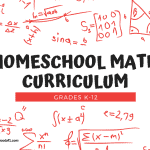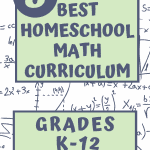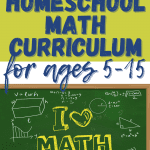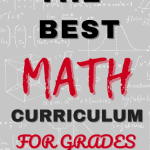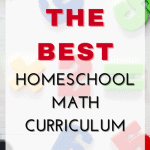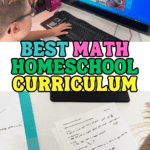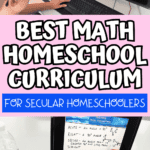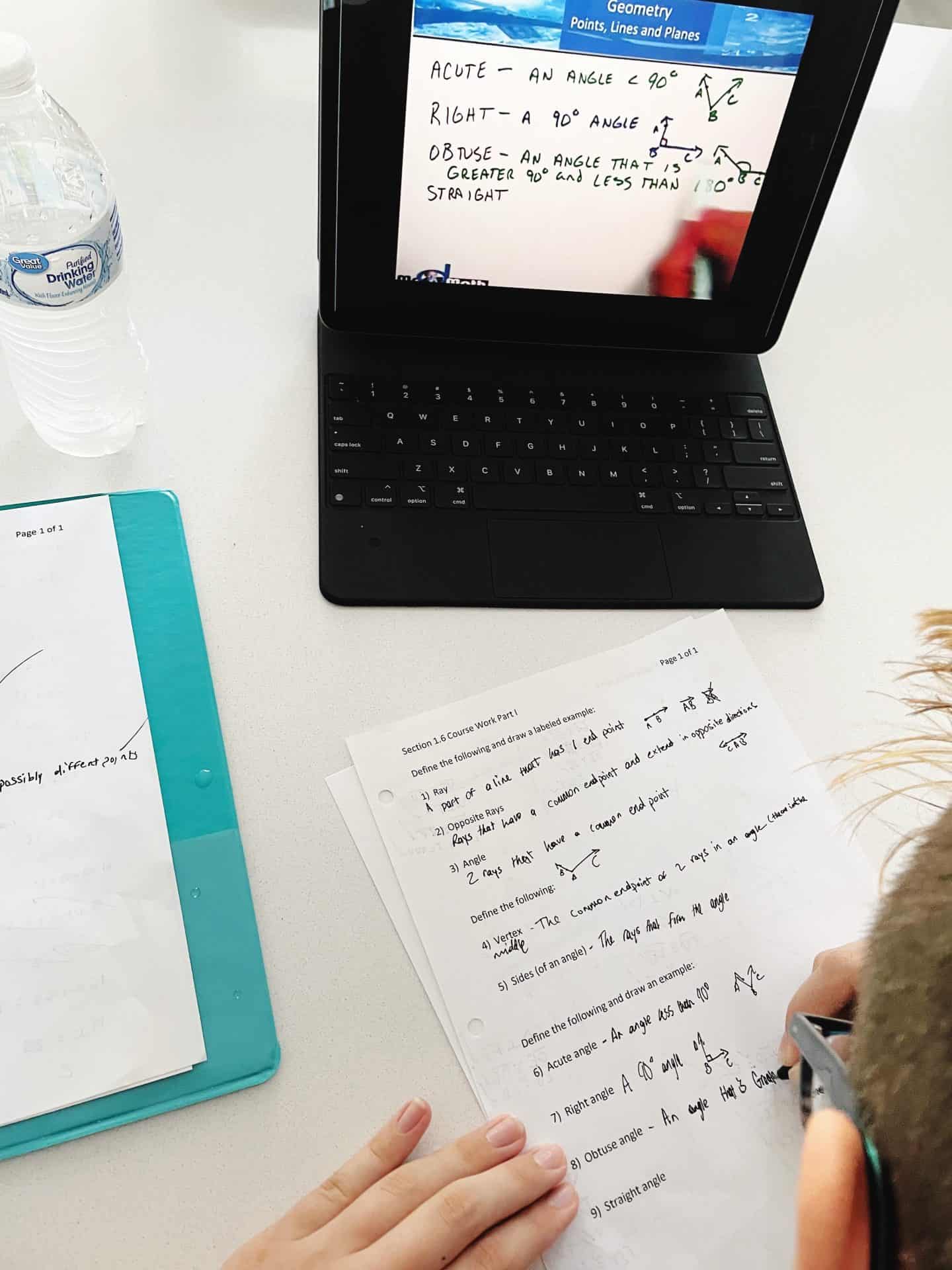Best Secular Homeschool Math Curriculum Picks
If you’re looking for the best homeschool math curriculum, you’re in good company. Math is something we genuinely love in our home.
Over the years, we’ve tried out quite a few programs, and this post shares the best secular homeschool curriculum options for math that have really stood out to us.
From elementary basics to high school, these resources offer something for every grade level and learning style.
We’ve personally used all the programs listed here, and I’m confident one of them will be just the right fit for your family too!
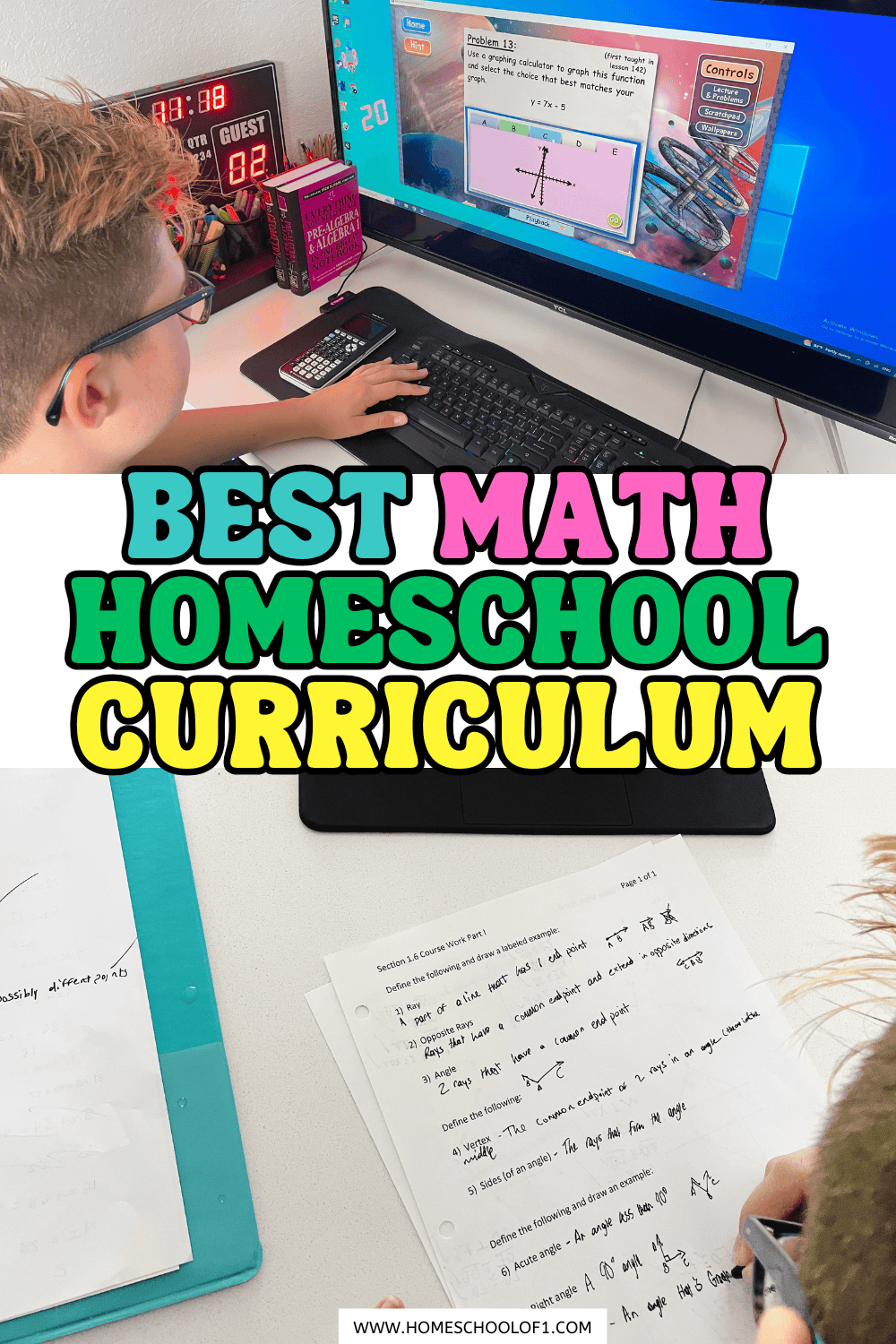
**This post may contain affiliate links. As an Amazon Associate and a participant in other affiliate programs, I earn a commission on qualifying purchases.**
For extra practice alongside a full curriculum, a printable worksheet generator can be helpful for reinforcing specific skills as needed.
Why the Right Homeschool Math Curriculum Matters
Math has always been a big part of our homeschool, sometimes a challenge, sometimes a win, but always important. Finding the right curriculum made all the difference, especially as my son’s learning style became clearer.
What worked one year didn’t always work the next, so we’ve tried a few different programs over time. The ones we stuck with were flexible, engaging, and helped him actually understand the concepts, not just memorize them.
A solid math foundation has helped him build confidence, ask better questions, and even make smarter choices with things like budgeting and planning.
Below, I’m sharing the math programs that stood out the most for us, each one bringing something a little different to the table.
Our Favorite Secular Math Curriculum
Over the years, we’ve used a wide range of homeschool math programs, some worked well for a season, others stuck with us long-term.
The list below includes the ones that stood out the most for us, depending on learning style, flexibility, and overall fit.
Mr. D Math
Mr. D Math has completely changed how my son approaches geometry. It took a subject that was feeling overwhelming and turned it into something he now feels confident about.
We started with the live classes but found the self-paced option fit our schedule better, and it still keeps him engaged. What I appreciate most is how clearly tough concepts are explained. It doesn’t feel watered down, just more approachable.
We plan to stick with Mr. D Math through high school, and we’ve also added their economics and ASL courses to round out our curriculum.
Teaching Textbooks
Teaching Textbooks was a great fit when we hit Algebra 1. The lessons are interactive, easy to follow, and strike a good balance between instruction and practice.
At first, we used the online version, but my son preferred working things out on paper, so we printed the problems and then entered answers online afterward. That small shift made a big difference.
The program adjusts based on your child’s progress, which helped him stay challenged without getting overwhelmed. It’s been especially helpful for focus, and I’d recommend it for kids who need structure but still want a bit of independence.
There’s a free trial of the first 15 lessons too, which is how we started. For more details, check out our in-depth Teaching Textbooks Algebra 1 review.
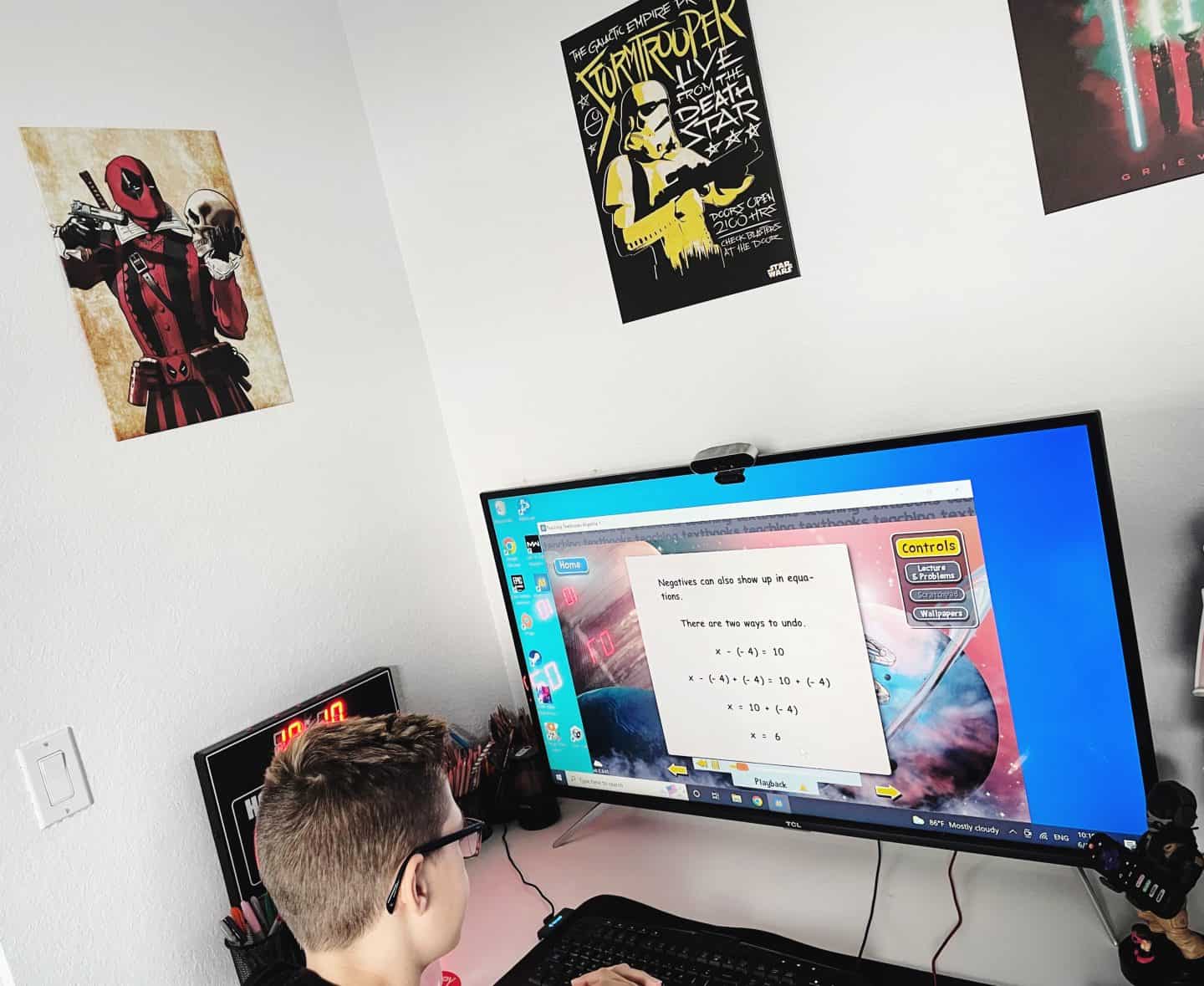
This is the best math curriculum for ADHD that we’ve discovered, helping kids stay engaged, focused, and confident throughout their learning journey. These programs adapt to various learning styles, ensuring that students with ADHD can excel and enjoy math.
Beast Academy
Beast Academy has been the most challenging math program we’ve used, and also one of the most rewarding. It’s designed for kids who love a good puzzle, and my son has really thrived with it.
We chose the workbooks over the online version since we already had a lot of screen-based learning. The comic book style makes the material feel less intimidating, even when the problems get tough.
Right now, he’s working through the 5th-grade level, though he could’ve moved on to pre-algebra. I wanted him to slow down and enjoy it. If your child finds math tricky, I’d start a level or two below grade to build confidence. They also offer free math games, which we often use for light review on Fridays.
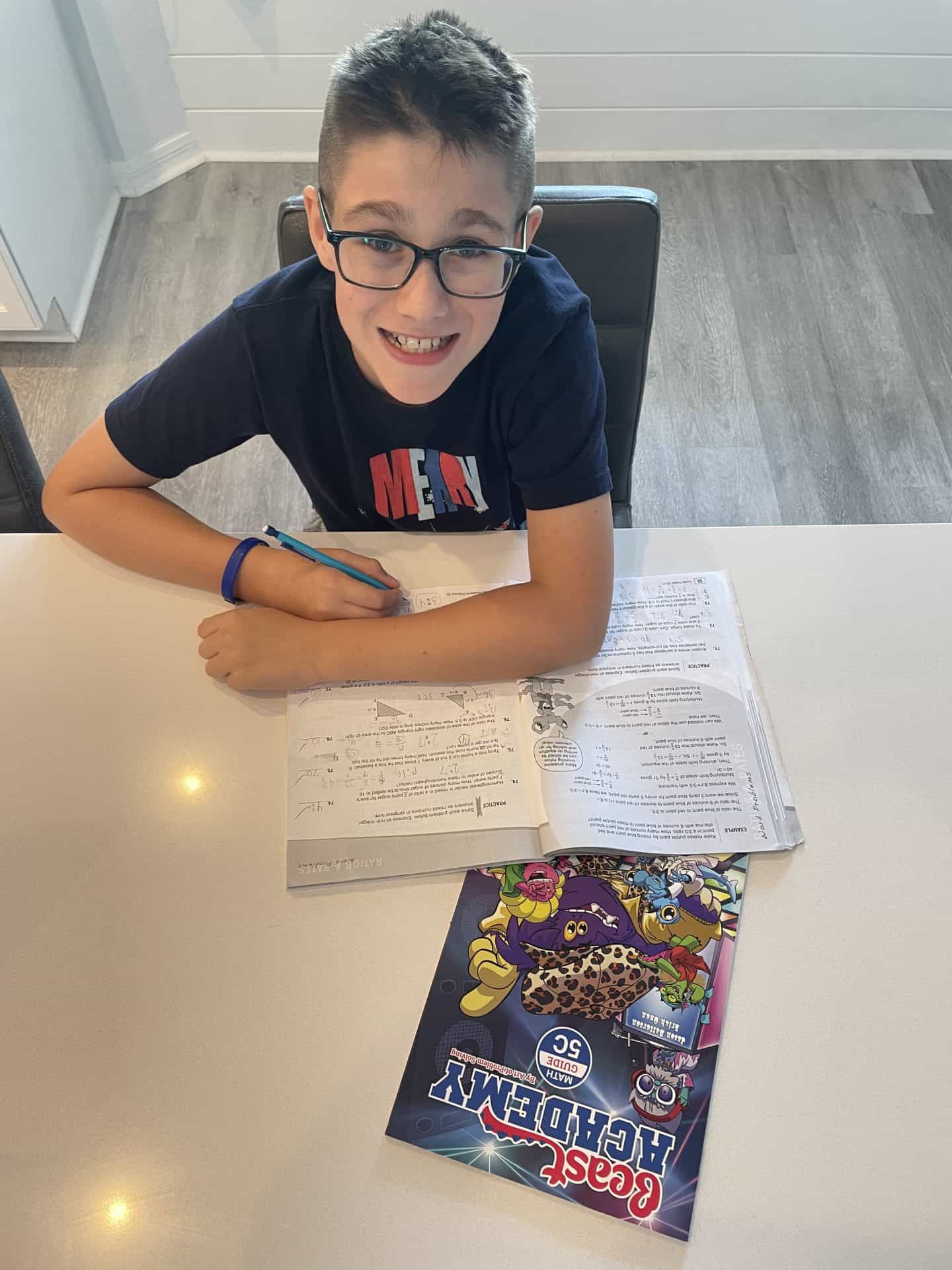
IXL
IXL has been a reliable tool for us, especially during the earlier years of homeschooling. It’s not a full curriculum, but the skill-by-skill breakdown and real-time diagnostics make it a great supplement.
What I like most is how it pinpoints exactly where my son needs more practice, and where he’s already solid. That kind of targeted feedback saved us time and frustration.
We’ve also used the IXL workbooks alongside the online program for extra reinforcement. If you’re looking to fill gaps or strengthen specific areas, IXL is a flexible, easy-to-use option.
They offer a 20% discount through homeschool accounts, which is worth checking out. You can also read our full IXL review for more reasons to give it a try.
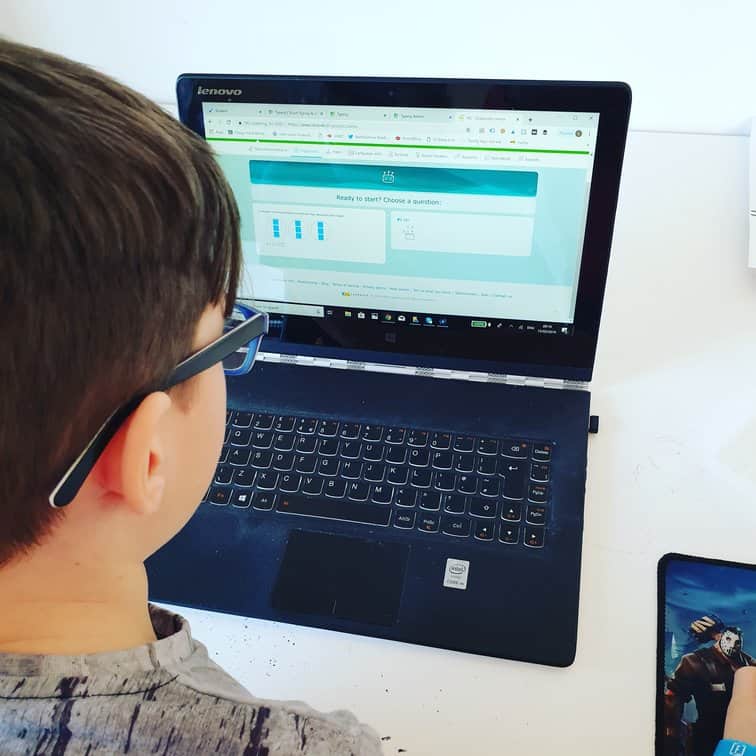
Saxon Math
Saxon Math has been a steady presence in our homeschool when we’ve needed a more traditional, structured approach. It’s thorough, repetitive in a good way, and really focuses on mastery.
The constant review built into each lesson helped my son retain what he was learning instead of forgetting it a week later. It’s not flashy or interactive, but the results speak for themselves, especially if your child benefits from routine and predictability.
We also found the student fact cards helpful for quick refreshers, and the incremental steps made tougher concepts feel more manageable.
Keep math exciting with our favorite middle school math board games, perfect for making learning fun while reinforcing key concepts!
Singapore Math
Singapore Math gave us a fresh way to look at problem solving. It focuses more on how to think about math than just getting the right answer, which worked really well for my son once he moved past the basics.
The visual models, especially the bar diagrams, helped him break down word problems and understand relationships between numbers. It’s definitely different from most U.S. programs, but in a good way.
If your child is more conceptual or gets stuck memorizing steps without understanding why they work, Singapore Math is worth considering. It’s helped us slow down and really focus on thinking through problems.
Math U See
Math U See has been a favorite for its hands-on, visual approach. My son has always done better with manipulatives than with written explanations, so the use of blocks in each lesson really clicked for him.
Each concept builds slowly and intentionally, and the focus on mastery means we never feel rushed to move on. It’s not flashy, but it’s solid, and ideal for visual or kinesthetic learners.
We’ve used it alongside other programs at times, but whenever we need to reinforce a tricky concept, Math U See is the one we come back to.
Need a little extra math support?
These homeschool math books helped us review tricky concepts and build confidence between lessons.
CTC Math
CTCMath has been one of the most flexible programs we’ve used. The short, clear video lessons make it easy to follow, and the fact that my son can move at his own pace has been a huge plus.
The lessons don’t drag, the practice is straightforward, and the explanations actually make sense, especially for topics that felt overwhelming in other programs.
It’s also one of the most affordable options out there, especially with the homeschool family discount. If you’re unsure, the free trial is a great way to test it out before committing.
For a detailed look, check out our review of CTC Math.
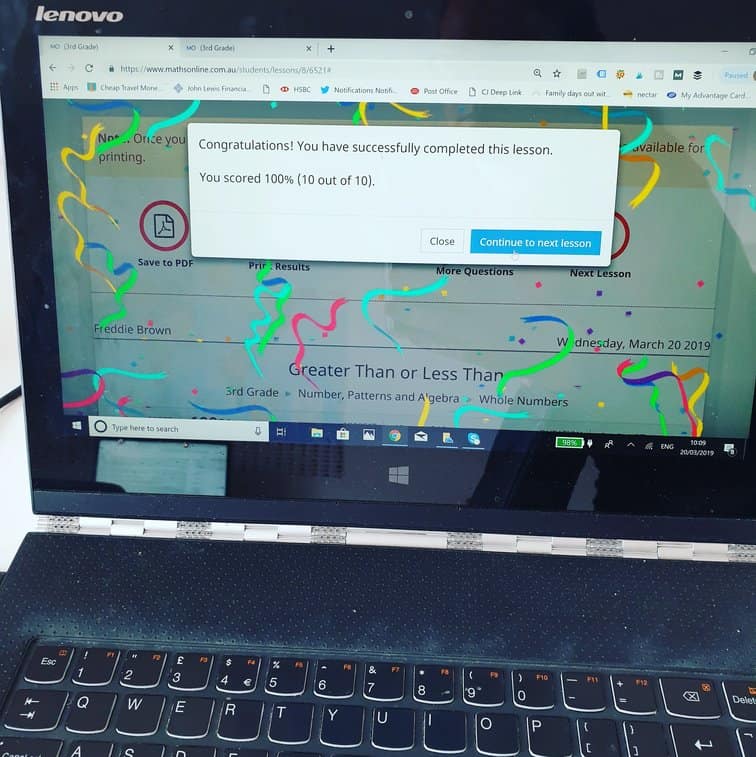
Spectrum Math
Spectrum workbooks have been a simple, reliable tool in our homeschool, especially when we’ve needed extra practice without screens. They’re no-frills but effective, covering everything from basic arithmetic to pre-algebra.
The layout is clear, the instructions are easy to follow, and the pages move at a steady pace without being overwhelming. My son liked using these when he needed a change of pace from our main curriculum.
We’ve used the homeschool workbooks both as a supplement and as light summer review. They’re especially helpful when you want consistent practice without a full program.
Math Mammoth
Math Mammoth has a great balance between structure and depth. It’s a mastery-based program, so each topic is explored thoroughly before moving on, which worked well for my son when he needed to slow down and really understand the “why” behind the math.
What makes it stand out is how clearly everything is explained, there’s no fluff, but it’s never dry either. Maria Miller, the creator, really understands how to teach math in a way that makes sense to both kids and parents.
We’ve found it especially helpful during transitions between grades or when we wanted a more independent approach to learning.
Horizons Math
Horizons Math was a great fit for us during the early elementary years. The colorful pages and fast-paced lessons kept my son engaged, especially when he was just starting to get comfortable with numbers.
It uses a spiral approach, so concepts are constantly reviewed and built upon, great for kids who need repetition but get bored with too much of the same thing.
We used it mostly from kindergarten through 3rd grade, and it helped build a strong foundation before moving into more structured programs. If you’ve got a younger child who likes a bit of variety and bright visuals, Horizons is worth a look.
Khan Academy
Khan Academy has been a helpful (and completely free homeschool curriculum) addition to our homeschool lineup. We’ve never used it as a full curriculum, but it’s been great for review, extra practice, or filling in gaps.
The video lessons are clear and to the point, and the built-in progress tracking makes it easy to see where your child is thriving, or where they might need more time.
It’s also aligned with Common Core, which is helpful if you’re trying to make sure nothing gets missed. For a zero-cost resource, it’s hard to beat the flexibility and depth Khan Academy offers.
Homeschooling math doesn’t have to be stressful, once you find a curriculum that clicks with your child’s learning style, things really do get easier.
Whether you’re starting with kindergarten basics or navigating high school geometry, the right program can make all the difference.
Last Updated on 23 October 2025 by Clare Brown

